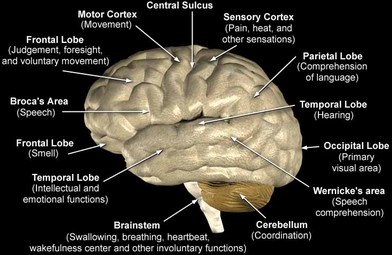Brain Foods
Take a good look at the picture above. This is your brain and it will have to get you through your whole life. Most people take care of their material possessions better than they take care of their brain. Sad but true. You can't be healthy without taking consideration of your brain. Please examine the foods below that build up your brain. They will help you perform and think clearer. The way the brain was meant to be.
Avocado
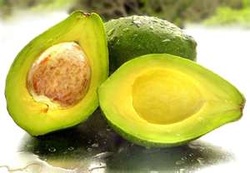
Avocados improve cognitive function, such as memory and concentration. They may also reduce the risk of a stroke. Avocados are rich in monounsaturated fat which is considered healthy fat. Monounsaturated fats decrease LDL Cholesterol the bad cholesterol, while increasing HDL cholesterol, the good cholesterol, thus preventing hardening of blood vessels. Healthy blood vessels allow proper blood flow, which reduces the risk of stroke.
Bananas

Did you know that the potassium in bananas stimulates your muscles, nerves and brain cells,? Bananas also help reduce blood pressure and risk of stroke.
Broccoli

High in calcium, vitamin c, B5, B6, B2, betacarotene, phosphorus, folate and iron, Broccoli is excellent for your brain. It contains Vitamin K. It helps in calcium regulation of the body. In particular, it appears to help with heart health and in the prevention of osteoporosis. It’s been suggested that Vitamin K prevents calcification (hardening of the arteries) in the brain.
Brown Rice
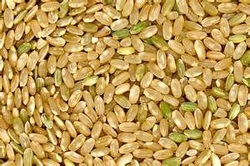
The B-vitamin riboflavin help produce energy for brain cells by revving up mitochondria. Brown rice contains other important B-vitamins too - like niacin, thiamin, and inositol for optimal brain health.
Brussel Sprouts

Brussel Sprouts have antioxidants that are considered nutrients that can protect the brain. Antioxidants help protect cells from the damage caused by "free radicals"
Cantaloupe

Cantaloupe has Vitamin B5 which helps in transmission of nerve impulses and improve brain cognition. Melons are alkalizing, blood anticoagulant, antioxidant, cleansing, diuretic, hydrating, laxative, rejuvenatory. They benefit lung ailments. Melons have been used therapeutically to improve arthritis, blood deficiency, constipation, fever, high blood pressure, kidney and bladder disorders, obesity, rheumatism, and skin diseases
Collard Greens
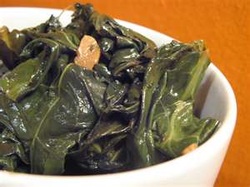
Collard greens contain carotenoids and flavonoids, which has been shown to slow mental decline by as much as 40 percent.
Eggs

Boost Brain Health with Eggs
Another health benefit of eggs is their contribution to the diet as a source of choline.
Choline is a key component of many fat-containing structures in cell membranes, whose flexibility and integrity depend on adequate supplies of choline. Two fat-like molecules in the brain, phosphatidylcholine and sphingomyelin, account for an unusually high percentage of the brain's total mass, so choline is particularly important for brain function and health.
Another health benefit of eggs is their contribution to the diet as a source of choline.
Choline is a key component of many fat-containing structures in cell membranes, whose flexibility and integrity depend on adequate supplies of choline. Two fat-like molecules in the brain, phosphatidylcholine and sphingomyelin, account for an unusually high percentage of the brain's total mass, so choline is particularly important for brain function and health.
Flaxseed
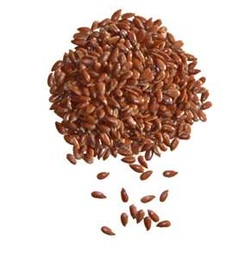
Flax contains alpha-linolenic acid (ALA).This is a healthy fat that improves the workings of the cerebral cortex, the area of the brain that processes sensory information like touch and taste.
Legumes
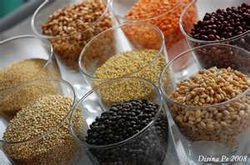
Legumes contain complex carbohydrates which can
supply your brain with a steady source of energy. Lentils and beans are rich in thiamin, which is critical for cognitive function. Legumes also contain high levels of iron and folate, which is important for preventing birth defects and enhances memory recall in women.
supply your brain with a steady source of energy. Lentils and beans are rich in thiamin, which is critical for cognitive function. Legumes also contain high levels of iron and folate, which is important for preventing birth defects and enhances memory recall in women.
Oatmeal
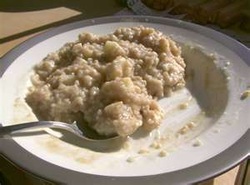
Oatmeal is a brain food. Oats contain Vitamin B1 a neurotransmitters and folate (B9) for cognitive function. A serving of oats contain 27% selenium which may protect brain cells from free radical damage, and 68% maganese, which helps the body process brain nutrients choline and thiamine - as well as assist in regulating blood sugar.
Oranges

Oranges have antioxidants in them that have been linked to improved memory and reasoning. Oranges contain a variety of phytochemicals. Hesperetin and Narigenin are flavonoids found in citrus fruits. Naringenin is found to have a bio-active effect on human health as antioxidant, free radical scavenger, anti-inflammatory, and immune system modulator. This substance has also been shown to reduce oxidant injury to DNA in vitro studies.
Nut and Seed Butters
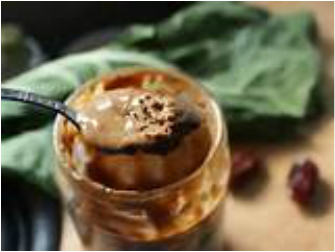
Nut and seed butters are good sources of particular vitamins the brain needs to function properly. They contain high amounts of vitamin E, which brain cells use as an antioxidant to protect them from chemical breakdown. These foods are also rich in niacin, a B vitamin the brain uses to protect against Alzheimer's disease and age-related degeneration.
Potatoes

Sweet potatoes are loaded with carotenoids, giving them a rich orange color. Carotenoids are important for the brain because they act as antioxidants, protecting cells from damage. Carotenoids also help form vitamin A, which is important in helping to sprout new neurons and to help neurons find each other to form new connections.
Romaine Lettuce

Romaine lettuce contains beta-carotene a disease fighting nutrient found in the darker-colored greens. As an antioxidant it can help certain cancers, heart disease and cataracts. And most important it helps boost your brain cognition.
Salmon
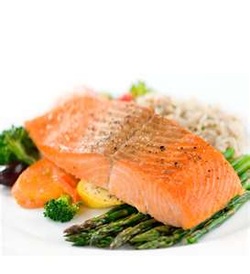
Eat salmon. Salmon is full of omega 3 fatty acids. Omega 3 fatty acids help the heart and brain. Eating fish high in omega 3 fatty acids once a week reduces the risk of Alzheimer disease. These acids can also improve memory and our ability to learn new things.
Spinach

Spinach contain carotenoids and flavonoids, which has been shown to slow mental decline by as much as 40 percent.
Tuna
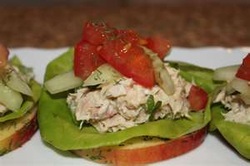
Tuna is rich in omega-3 and it vitiamin B1, B3, and B6, which is crucial for memory and energy. The Journal Of Nutrition showed those eating only 2.1 ounces of fish rich in omeaga 3 per week had much better test scores than those eating less to none.
Turkey

Eat foods that are rich in protein, such as Turkey it is high in amino acids and tyrosine. Amino acids are able to cross the filter between the blood and the brain. When it crosses these barriers, it is converted into dopamine and norepinephrine. Dopamine and norepinephrine help to keep us alert.
Wheat Germ

Wheat germ have high contents of folate it works to increase blood flow to the brain which means a higher quality and quantity of brain function. This grain contains a lot of vitamin B6, which is full of thiamine. Thiamine is great for improving memory.
Yogurt
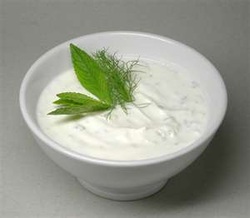
Yogurt contains the amino acid tyrosine, which is vital to the production of dopamine, noradrenalin and other neurotransmitters. Tyrosine is easily depleted by stress, and supplementation of intake may improve both memory and alertness
THINGS THAT DISRUPT THE BRAIN
ALCOHOL

_Alcohol affects the brain by causing one to loose equilibrium, blurred vision, slurred speech, slowed reaction times, and impaired memory. Also known to kill brain cells.
ARTIFICIAL FOOD COLORING

_Most of the artificial colorings used in food are synthetic dyes. They have been suspected of having carcinogenic
effects.
effects.
ARTIFICIAL SWEETNERS

_Artificial sweetners like aspartame may cause potential brain tumors, multiple sclerosis, epilepsy, chronic fatigue
syndrome, parkinson's disease, alzheimer's, mental retardation,
lymphoma, birth defects, fibromyalgia, and diabetes.
COLAS

Check out Killer Colas by Dr. Nancy Appleton and
G.N. Jacobs.
Over the last two and a half decades the sale of sodas, energy beverages,
and sports drinks has took over our nation, and so has the incidence of adult and
childhood obesity, diabetes, hypertension, heart disease, cancer, and
stroke. In Killer Colas, the authors detail why this has occurred. They take you through the history and growth of the soft
drink industry.
Looking at the industry’s powerful influence over the media; and they
look at the addictive and harmful ingredients these companies have added. Showing scientific evidence that
links our declining health to the consumption of these drinks.
_
_
CORN SYRUP
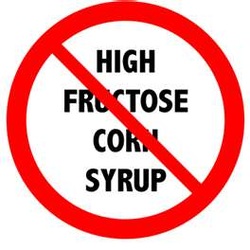
_Corn Syrup has recently been discovered to contain levels of mercury. Even low
levels of mercury have damaging effects on the nervous systems of
fetuses and babies. Mercury exposure is dangerous and can adversely affect the brain’s memory and motor skill
functions.
FROSTINGS

_Avoid sugar.
Too much sugar can cause a sluggish feeling makes it hard
to think clearly. It results from the insulin rushing into the
bloodstream to counteract the sugar rush.
HIGH SUGAR DRINKS

_Too many high
sugar drinks can actually
deprive your brain of glucose – depleting its energy
supply and compromising your brain's power to concentrate,
remember, and learn. Mental activity requires a lot of energy.
HYDROGENATED FATS

_Hydrogenated fats
found in foods like french fries, margarine, potato chips disrupt
communication in your brain. These fats are man made. They weaken the brain's structure failing to cope with life's stress.
JUNK SUGARS

_Research has suggested that diets high in junk sugars may also impair essential brain functions, like concentration and memory.
NICOTINE

_When a person inhales cigarette smoke, the nicotine in the smoke is
rapidly absorbed into the blood and starts affecting the brain within 10
seconds. The result is the release of adrenaline, the "fight or
flight" hormone.
Physically, adrenaline increases a person's heart rate, blood pressure
and restricts blood flow to the heart muscle. When this occurs, the
smoker experiences rapid, shallow breathing and the feeling of a racing
heartbeat. Adrenaline also instructs the body to dump excess glucose
into the bloodstream.
OVEREATING

_Research has found that overeating stimulates a usually dormant immune
pathway in the brain. Once stimulated the brain then sounds the alarm
for the immune system to battle invaders that aren't really there. The
overactive immune system then creates an inflammation response all over
the body. Chronic inflammation leads to chronic disease like type 2
diabetes and heart disease.

